15 Essential Questions to Ask Your Physical Therapist
Visiting a physical therapist can be a transformative experience. Whether you're recovering from an injury or trying to improve your overall mobility, asking the right questions can enhance your therapy sessions. Here are some essential questions to ensure you get the most out of your time with a physical therapist.
1. What Should I Expect During My First Session?
It's important to know what will happen in your first session, including any evaluations or assessments that will be performed. First impressions matter, and setting the right expectations can ease any pre-appointment jitters. Typically, the session will start with a thorough discussion of your medical history, the reasons behind your visit, and any specific goals you have. This initial dialogue establishes the foundation for your treatment.
Next, your physical therapist will likely conduct a physical assessment to identify any issues related to your movement and flexibility. This hands-on evaluation will inform them about your current physical condition. Don't shy away from asking questions during this part; understanding these evaluations can demystify the process and help you feel more engaged.
2. How Will You Tailor My Treatment Plan?
Understanding how your therapist will customize your plan based on your specific needs and goals is crucial for your success. Each individual is unique, which means that a one-size-fits-all approach is ineffective in physical therapy. Your therapist should be prepared to explain how they plan to address your specific challenges and objectives.
Moreover, don't hesitate to share your preferences. Whether you prefer certain types of exercises, gentle stretching, or more dynamic movements, your feedback is invaluable. It not only tailors the plan to meet your likes but also enhances your overall commitment to the regimen. Your input can drive the adaptation of your treatment plan, ensuring it resonates with your lifestyle and motivates you to stay on track.
3. What Techniques and Modalities Do You Use?
Asking about the techniques can help you understand what to expect and the rationale behind different modalities. Whether it’s dry needling, ultrasound therapy, or manual manipulation, each method offers distinct benefits. Your therapist should be excited to explain these options, illuminating why they've chosen specific modalities for your care.
In addition, familiarizing yourself with these techniques can help alleviate anxiety about any unfamiliar procedures. Knowledge empowers you as a patient—when you understand why certain techniques are being used, you're more likely to cooperate fully with the treatment plan. Make it a point to ask for demonstrations where applicable; seeing an exercise or treatment in action can fill in the gaps of your understanding and lessen any apprehensions.
4. How Often Should I Come In for Sessions?
This question can help you create a schedule that aligns with your lifestyle while ensuring effective treatment. Regularity is key in physical therapy, and the frequency of your visits can vary widely based on your specific condition and goals. It's essential to have a candid discussion about what a realistic schedule looks like for you.
Your therapist may suggest a more intensive schedule in the beginning to kickstart your recovery, tapering off as your condition improves. Additionally, understanding the rationale behind the timing can help with your adherence during tougher days. Stay open to adjusting this schedule based on how your body responds to treatment. Communication remains imperative—if you notice improved mobility, mention it to your therapist so they can adapt your visits accordingly.
5. What Exercises Should I Do at Home?
Home exercises are often essential for recovery. Knowing what to do at home enhances the effect of therapy. Your therapist will likely provide you with a list of exercises tailored specifically for you, so it's crucial to understand how and when to perform them correctly.
Additionally, ask how these exercises play a role in your overall treatment plan. Understanding their significance will turn a mundane routine into a powerful strategy for recovery. Using visual aids or written instructions can also be helpful, so don't hesitate to request extra resources to ensure you’re performing activities correctly and safely.
6. How Will Progress Be Measured?
Understanding how progress is assessed helps to keep you motivated and aware of your improvements. A transparent framework for measurement allows you to celebrate small victories along your recovery journey. Your therapist should provide specific benchmarks to look out for—these could include range of motion improvements, strength gains, or functional goals.
If you find yourself stagnating, knowing how progress is tracked can spur essential discussions about adjustments to your treatment plan. In essence, follow-ups to evaluate your progress should feel like partnerships. By discussing results with your therapist, you can remain proactive in your recovery, which fosters a sense of empowerment.
7. What Should I Do If I Experience Pain During Exercises?
Pain management is key. It's important to clarify what constitutes acceptable discomfort and when to alert your therapist. Pain during exercises can create confusion, leading some patients to stop working out altogether, which isn't always necessary.
Engaging in a dialogue about pain expectations helps demystify these sensations. There’s a fine line between beneficial discomfort and potential injury, and your therapist can guide you in navigating it. Make sure to ask for clear instructions on when and how to communicate discomfort alerting your therapist, as well as methods to alleviate pain should it arise.
8. Are There Any Lifestyle Changes I Should Consider?
Your therapist can provide guidance on habits that can improve your overall health and support your recovery. The journey to rehabilitation often extends beyond the clinic, and adopting a holistic approach can complement your therapy. This could mean integrating regular exercise into your daily life or adjusting dietary habits.
Discussing lifestyle habits opens the door to creating an all-encompassing strategy for your well-being. For instance, ask about ergonomic adjustments at work or how to manage stress effectively. Your physical therapist's expertise often encompasses these areas, providing you with tools to foster a healthier lifestyle in tandem with your therapy.
9. Can You Explain the Goals of My Treatment?
Knowing the objectives of your therapy ensures you stay aligned with your therapist throughout the process. This clarity not only keeps you focused but also helps in maintaining the motivation to complete your regimen. Be proactive in asking how each aspect of your treatment ties back to your long-term goals.
Each session should feel like a step forward. Clarifying immediate and long-term goals creates a roadmap for your recovery and empowers you to ask deeper questions about anything that feels unclear. As you progress, revisit these goals with your therapist to adjust and refine them as necessary, ensuring you’re working towards achievable benchmarks that drive your success.
10. How Long Should I Expect My Treatment to Last?
Understanding the timeline helps you plan and integrate therapy into your daily life. Each patient is different; timelines can range from a few weeks to several months, depending on the complexity of your issues. It's helpful to discuss potential milestones of recovery so you can mentally prepare for the journey ahead.
Keep in mind that these timelines are flexible. Regular assessments might prompt your therapist to adjust your treatment duration. Inquire about early signs that indicate progress—this knowledge can reinforce your commitment, making the path feel more manageable. Patience is key in recovery, and knowing when to anticipate advancements can foster a better mental space for tackling challenges.
11. Will I Need Follow-Up Sessions After Treatment?
Discussing long-term care options is essential for maintaining your progress beyond the treatment phase. Many patients benefit from periodic check-ups, even after initial therapy ends. It’s wise to ask your therapist about a follow-up schedule and any maintenance strategies you should incorporate into your life.
This preventive approach can mitigate future issues and reinforce the positive changes you've worked hard to achieve. Consider inquiring about any signs that suggest the need for a revisit—being aware of these signs can foster a proactive mindset as you transition out of the recovery phase.
12. What Resources Do You Recommend for Further Learning?
Your therapist may have books, websites, or workshops that can deepen your understanding and support your journey. Humor can sometimes be the best medicine, so don't hesitate to ask if they know of any engaging resources that make learning about health and rehabilitation fun.
Asking for resources encourages a partnership approach to your recovery. The more informed you are, the more effective your communication with your physical therapist. Look for a range of materials, as some may suit your learning style more than others—whether it's audio, visual, or hands-on experiences.
13. How Can I Communicate With You Between Appointments?
Establishing a communication channel helps you address any concerns that arise between visits. Most therapists are receptive to questions outside of scheduled sessions—whether it's via email, phone calls, or a patient portal. Don't hesitate to clarify how and when to reach out.
Being proactive in your communication strengthens the patient-therapist relationship, making it easier to share progress, setbacks, or changes to your condition. Additionally, a good therapist will appreciate your initiative in staying informed and engaged, cementing a collaborative approach to your treatment.
14. Are There Any Alternatives to Traditional Therapy?
It's helpful to explore alternative treatments and see if they can complement your current therapy. From acupuncture to yoga, many holistic options may be used in conjunction with traditional therapy practices. Asking your therapist for their opinions can broaden your perspective and introduce effective adjunct therapies.
Being open to alternative methods can provide additional routes to recovery, diversifying your approach while keeping you engaged. Just remember, any alternative you consider should align with your current treatment plan. Open communication ensures everyone is on the same page, which is vital for both your mental comfort and physical safety.
15. What Should I Do in Case of a Setback?
Understanding how to handle setbacks ensures you remain proactive in your recovery journey. Setbacks are a natural part of rehabilitation; knowing how to react can help you maintain your resolve. It's essential to engage in a dialogue about what to do when things don’t go as planned.
Be sure to ask for coping mechanisms and methods to stay focused despite challenges. This proactive mindset encourages resilience, reminding you that recovery is often non-linear. A setback doesn’t mean you're failing—often, it’s just an opportunity to reassess and recalibrate your treatment approach.


